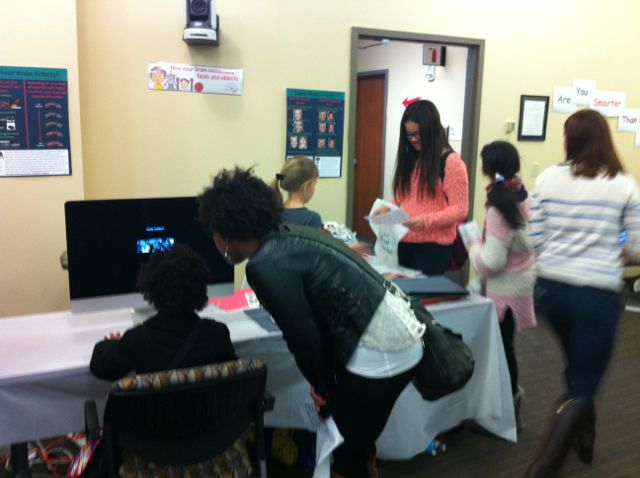see the photos of the 30th workshop reunion of the Perceptual Expertise Network
http://catlab.psy.vanderbilt.
see the photos of the 30th workshop reunion of the Perceptual Expertise Network
http://catlab.psy.vanderbilt.
for receiving the Bob Fox Award of Excellence in Post-Doctoral Research!

@jennrichler Although the head Editor of JEP:G KICKS ASS and she is female. She's bold, wise, and visionary. To me, Isabel Gauthier = #hero
— Elizabeth Page-Gould (@page_gould) April 15, 2015
On April 1, 2015, Jenn received the most attention ever to her twitter account for posting a revision of the Vanderbilt Holistic Processing Test.
New & improved Vanderbilt Holistic Face Processing Test (ver 2.1) now available: http://t.co/hUzSP5NG0j
— Jenn Richler (@JennRichler) March 30, 2015
🙂
Congrats on getting such positive feedback and good luck for the next cycle!
Mackenzie Sunday, Rankin McGugin and Isabel Gauthier, with the help of Cléo and Émile, taught visitors how to make their own composite and Thatcher faces (with good old paper, scissors and glue!)
Children and their parents could also test their perceptual expertise with faces, cars and birds, and see a visualization of what their brain activity could look like given their performance.

The web is a very strange place… The original Greeble work, covered in io9 in Feb 2015